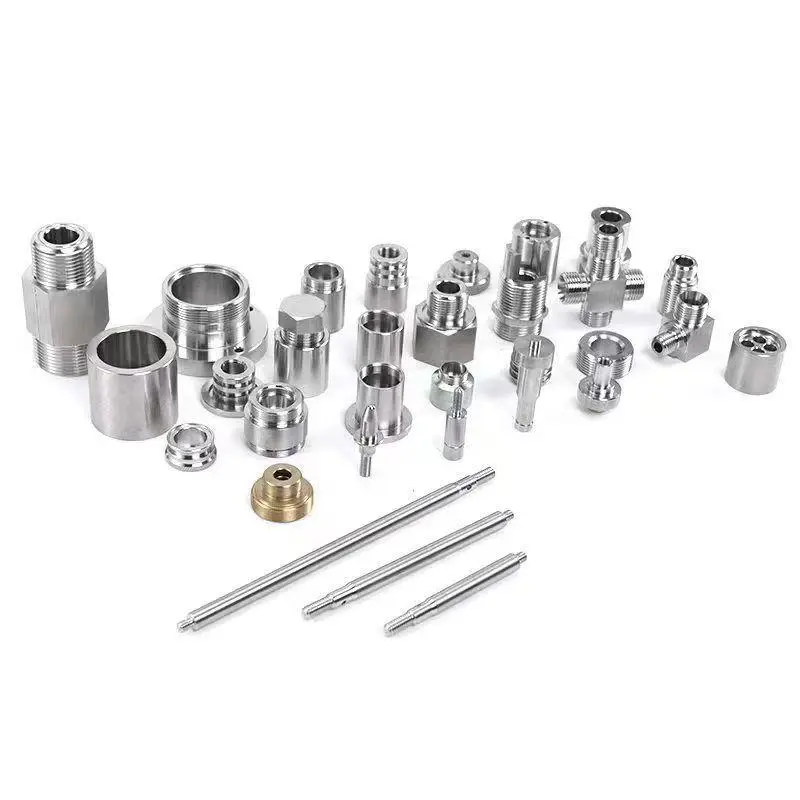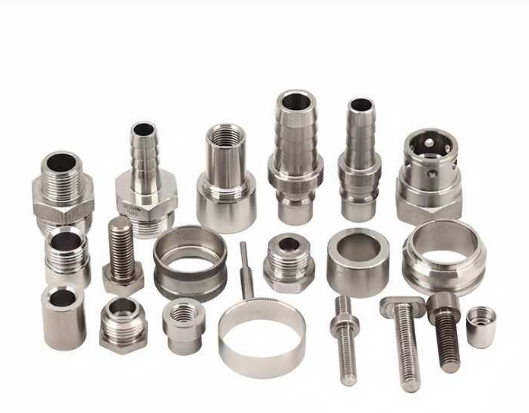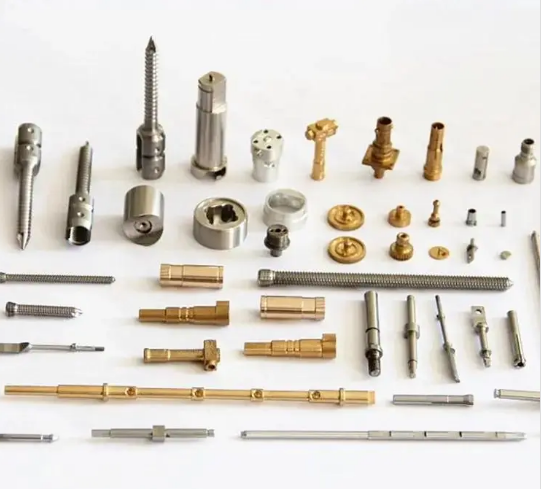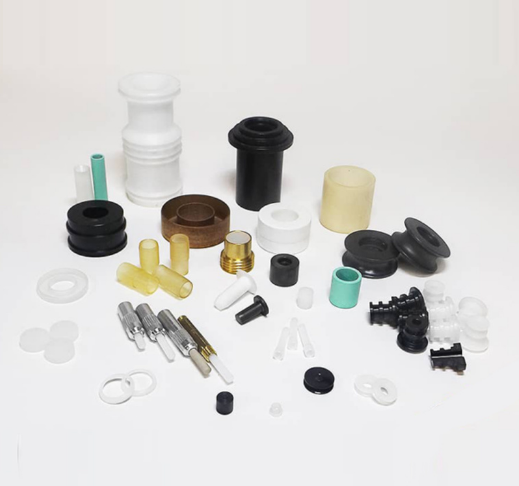How CNC Swiss Machining Revolutionizes Stainless Steel Part Production
Published Time:
2025-09-20
How CNC Swiss Machining Revolutionizes Stainless Steel Part Production
Table of Contents
- What is CNC Swiss Machining?
- Benefits of CNC Swiss Machining for Stainless Steel Parts
- The Process of CNC Swiss Machining
- Applications of CNC Swiss Machining in Stainless Steel Manufacturing
- Key Factors in Choosing CNC Swiss Machining for Your Projects
- Challenges in CNC Swiss Machining and How to Overcome Them
- The Future of CNC Swiss Machining
- FAQs about CNC Swiss Machining
What is CNC Swiss Machining?
CNC Swiss machining is a specialized manufacturing process that utilizes computer numerical control (CNC) technology to produce intricate, high-precision parts from metal materials, particularly stainless steel. This technique is renowned for its ability to create complex shapes and dimensions with minimal waste. Unlike traditional machining methods, Swiss machining operates with a unique sliding headstock that allows for exceptionally precise machining of small parts in a single setup.
The term "Swiss machining" originates from Switzerland, where this method was first developed in the early 20th century for watchmaking. Today, CNC Swiss machining serves a wide range of industries, including aerospace, medical, automotive, and electronics, providing them with high-quality stainless steel components.
Benefits of CNC Swiss Machining for Stainless Steel Parts
The adoption of CNC Swiss machining for stainless steel parts has transformed the manufacturing landscape. Here are the key benefits:
1. Precision and Accuracy
CNC Swiss machines are designed for high precision, often achieving tolerances of ±0.001 inches. This level of accuracy is crucial in industries where even minor deviations can lead to failure or inefficiency.
2. Enhanced Efficiency
CNC Swiss machining allows for multiple operations to be performed in a single setup, significantly reducing production time. As a result, manufacturers can produce more parts in less time, leading to higher overall efficiency.
3. Reduced Material Waste
The design of CNC Swiss machines minimizes the amount of raw material wasted during the machining process. This not only lowers costs but also supports sustainability efforts within the manufacturing sector.
4. Versatility in Design
CNC Swiss machining is capable of producing a wide range of part geometries, from simple cylindrical shapes to complex multi-faceted designs. This versatility enables manufacturers to meet the diverse needs of their clients effectively.
5. Superior Surface Finish
Parts produced using CNC Swiss machining typically exhibit exceptional surface finishes. This quality is particularly important in applications where aesthetics and performance are paramount, such as in medical devices and luxury products.
The Process of CNC Swiss Machining
Understanding the CNC Swiss machining process is essential for appreciating its benefits. Here’s a step-by-step breakdown:
1. Material Selection
The process begins with the selection of appropriate stainless steel material, typically in the form of a bar stock. Common grades include 304 and 316 stainless steel, known for their corrosion resistance and strength.
2. Setup and Programming
The CNC Swiss machine is programmed using specialized software. Operators input the part specifications, including dimensions, shapes, and tolerances. This programming allows for precise control over the machining process.
3. Machining Operations
The bar stock is placed in the machine, and the sliding headstock moves to perform various operations, including turning, milling, drilling, and threading. The CNC control system ensures that each step is executed with precision.
4. Quality Control
Once the machining is complete, parts undergo rigorous quality control inspections. Techniques such as CMM (Coordinate Measuring Machine) inspections and visual checks are employed to ensure specifications are met.
5. Finishing Touches
Finally, parts may receive additional finishing processes, such as polishing, coating, or heat treatment, to enhance their performance and appearance.
Applications of CNC Swiss Machining in Stainless Steel Manufacturing
CNC Swiss machining finds applications across various industries, thanks to its precision and versatility. Key applications include:
1. Medical Devices
In the medical field, CNC Swiss machining is used to create surgical instruments, implants, and other critical components that require stringent quality standards and precision.
2. Aerospace Components
Aerospace manufacturing demands high-performance parts that can withstand extreme conditions. CNC Swiss machining delivers lightweight and durable components that meet the stringent regulations of the aerospace industry.
3. Automotive Parts
The automotive sector utilizes CNC Swiss machining for producing intricate engine components, fasteners, and transmission parts, where precision and durability are vital for vehicle performance.
4. Electronics
In electronics manufacturing, CNC Swiss machining is employed to create connectors, housings, and other small, intricate parts that require precise dimensions and excellent finish quality.
5. Industrial Equipment
Many industrial applications rely on CNC Swiss machining for producing components such as valves, fittings, and gears, which require high precision and reliability.
Key Factors in Choosing CNC Swiss Machining for Your Projects
When considering CNC Swiss machining for stainless steel part production, several factors should be evaluated:
1. Complexity of Design
If your project involves intricate designs with tight tolerances, CNC Swiss machining is an ideal solution due to its capability to manage complex geometries effectively.
2. Production Volume
CNC Swiss machining is particularly beneficial for high-volume production runs, as it reduces cycle times and increases efficiency.
3. Material Compatibility
Ensure that the stainless steel grade chosen is compatible with the CNC Swiss machining process to achieve the desired properties and performance.
4. Cost Considerations
While CNC Swiss machining may have higher initial setup costs, the long-term savings from reduced waste and increased efficiency can outweigh these costs significantly.
5. Supplier Expertise
Select a supplier with experience in CNC Swiss machining and a proven track record in producing high-quality stainless steel parts. Their expertise can significantly impact the overall success of your project.
Challenges in CNC Swiss Machining and How to Overcome Them
While CNC Swiss machining offers numerous advantages, challenges can arise, including:
1. Machine Complexity
CNC Swiss machines are intricate and require skilled operators for programming and setup. Investing in training for operators can help overcome this challenge.
2. Tool Wear
Due to the high speeds and precision required, tools can wear out quickly. Regular maintenance and timely replacement of tools can mitigate this issue.
3. Initial Setup Costs
The initial investment in CNC Swiss machining equipment can be significant. However, cost-effective solutions can be achieved through leasing or outsourcing to experienced machining service providers.
4. Material Limitations
Not all stainless steel grades are suitable for CNC Swiss machining. Collaborating with material suppliers can provide insights into the best options for your specific applications.
5. Quality Assurance
Ensuring consistent quality can be challenging. Implementing robust quality control processes, including regular inspections and testing, can maintain high standards throughout production.
The Future of CNC Swiss Machining
As technology continues to evolve, the future of CNC Swiss machining looks promising. Innovations are expected to enhance efficiency, precision, and versatility. Advanced software solutions with AI capabilities will streamline programming and allow for real-time adjustments during machining processes. Additionally, trends towards automation and integration with Industry 4.0 principles will enable manufacturers to optimize production lines and reduce downtime.
Investments in research and development will lead to the discovery of new materials and machining techniques, further expanding the scope of CNC Swiss machining applications. As industries increasingly prioritize sustainability, CNC Swiss machining will play a pivotal role in creating efficient, environmentally friendly manufacturing solutions.
FAQs about CNC Swiss Machining
1. What types of materials can be machined using CNC Swiss machining?
CNC Swiss machining can effectively work with a variety of materials, including stainless steel, aluminum, brass, and plastic. However, stainless steel is particularly favored for its strength and corrosion resistance.
2. How does CNC Swiss machining compare to traditional machining methods?
CNC Swiss machining offers superior precision, efficiency, and reduced waste compared to traditional machining methods. It allows for complex geometries to be machined in a single setup, enhancing productivity.
3. What industries benefit most from CNC Swiss machining?
Industries such as medical, aerospace, automotive, electronics, and industrial equipment manufacturing benefit significantly from CNC Swiss machining due to its precision and versatility.
4. Can CNC Swiss machining be used for low-volume production?
While CNC Swiss machining is most effective for high-volume production, it can also be utilized for low-volume projects, particularly when high precision is required.
5. What are the typical lead times for CNC Swiss machining projects?
Lead times for CNC Swiss machining can vary based on project complexity and volume. However, due to the efficiency of the process, many projects can be completed faster than with traditional machining methods.
Conclusion
CNC Swiss machining represents a paradigm shift in the realm of stainless steel part production. Its unparalleled accuracy, efficiency, and versatility make it an invaluable asset across various industries. As technology continues to advance, CNC Swiss machining is poised to redefine manufacturing standards, driving innovation and sustainability in production processes. By understanding its benefits, processes, and applications, manufacturers can leverage this powerful technology to enhance their operations and meet the ever-evolving demands of the market.
Previous Page
Previous Page
NewsCenter
Beijing Pafinal Precision Machinery Co., Ltd.
Email:sales@pafinal.com

Address: No. 239 Huanhe South Road, Tianjin Pilot Free Trade Zone (Airport Economic Zone), Tianjin
中企跨境-全域组件
制作前进入CSS配置样式
sales@pafinal.com:
Whatsapp:
在线客服添加返回顶部
图片alt标题设置: PAFINAL
表单验证提示文本: Content cannot be empty!
循环体没有内容时: Sorry,no matching items were found.
CSS / JS 文件放置地




 2025-09-20
2025-09-20


